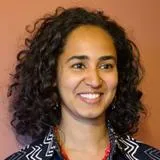Course details
- DepartmentDepartment of Gender Studies
- Application codeSS-IR112
Apply
Applications are open
We are accepting applications. Apply early to avoid disappointment.
Overview
Why is policymaking a queer and feminist issue? How do gender-blind policy fall short in addressing societal needs, and how can they be reimagined through a deeper understanding of gendered and sexualised cultural life?
This course engages with the politics of policy making from queer and feminist perspectives, rooting the discussion in cultural discourse of contemporary society. You will discover how policies shape – and are shaped by – the lived experiences of individuals and communities.
You will explore the importance of gender and sexuality for various forms of policymaking across local, national and international levels. Using various innovative approaches and perspectives in gender and sexuality studies, you will investigate how sexual and gender inequalities, in connection with other power structures like race, ethnicity, and class, are embedded and activated in the policymaking process.
Through engaging lectures and discussions led by expert academics and practitioners, you will develop an understanding of core concepts and theories in gender and sexuality, and to use these to understand policy making in relation to cultural life. To complement the in-class learning, students will also take a field trip and interact with policy makers, such as Members of Parliament, regional mayors, cultural workers and trade union representatives.
Key information
Prerequisites: There are no prerequisites for this course.
Level: 100 level. Read more information on levels in our FAQs
Fees: Please see Fees and payments
Lectures: 36 hours
Classes: 18 hours
Assessment: One essay (50%) and one take home exam (50%)
Typical credit: 3-4 credits (US) 7.5 ECTS points (EU)
Please note: Assessment is optional but may be required for credit by your home institution. Your home institution will be able to advise how you can meet their credit requirements. For more information on exams and credit, read Teaching and assessment
Is this course right for you?
This course is ideal if you are seeking an understanding of issues related to gender and sexuality studies and its policy perspectives. If you are targeting a career in government, third sector non-profits, media or think tanks, you should consider this course. It will also be useful if you are starting postgraduate studies in gender, anthropology, sociology, social policy, cultural and media studies and wish to learn introductory concepts in the area.
Outcomes
- Knowledge of the historical and contemporary parameters of sexuality, gender and culture
- Appreciation of the intersectionality of concepts relating to the field and their translatability across time and space
- The ability to apply a range of theoretical and methodology perspectives to the analysis of debates and contexts
- Building confidence to apply theory to context and practice
- Experience of working with others, presenting ideas verbally and in written form, participation in seminar and lecture discussions
- Develop an understanding of a range of concepts and conceptual frameworks used to depict the social world and policy interventions
- Demonstrate how the concepts and frameworks can be used to organise, evaluate and critique policies or policy processes
Content
Faculty
The design of this course is guided by LSE faculty, as well as industry experts, who will share their experience and in-depth knowledge with you throughout the course.

Dr Rohit Dasgupta
Associate Professor in Gender and Sexuality

Dr Asiya Islam
Assistant Professor in Gender, Development and Globalisation
Department
The Department of Gender Studies (formerly known as the Gender Institute) was established in 1993 to address the major intellectual challenges posed by contemporary changes in gender relations.
As a recognised hub of global expertise in the study of gender, the Department pioneers intersectional, interdisciplinary and transnational teaching and research. As a stand-alone department, they are able to provide not only a shared physical space for our students to interact with peers and faculty, but also a distinct intellectual space. This environment fosters cohesion and connectedness, and generates dynamic and innovative knowledge production and exchange.
Join our mailing list
Join our mailing list to be notified when applications open for next summer.
Apply
Applications are open
We are accepting applications. Apply early to avoid disappointment.
